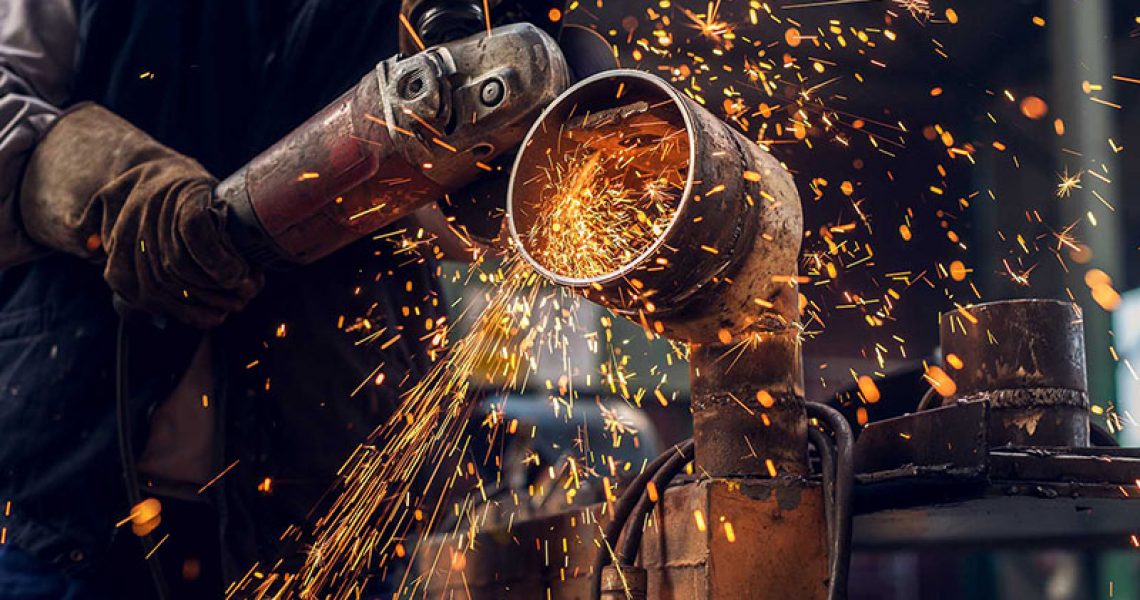La verdad es que la industria de la soldadura no es para todos. Es un trabajo difícil y físicamente exigente, pero también es un trabajo gratificante y del que los soldadores profesionales se enorgullecen, y con razón. La soldadura es esencial para una amplia variedad de productos e infraestructuras, y desempeña un papel bastante importante en varios aspectos de nuestra vida cotidiana.
¿Por qué son? Soldadores Importantes?
En definitiva, los soldadores son los responsables de construir el mundo en el que vivimos actualmente. Sin embargo, es fácil pasar por alto el impacto que ha tenido la industria de la soldadura en el mundo que nos rodea. Pensemos en los coches que conducimos, las carreteras por las que circulamos, los edificios en los que vivimos y trabajamos y las tuberías de las que dependemos para transferir líquidos y materiales. Nada de esto sería posible sin el trabajo que realizan los ingenieros de soldadura.
La soldadura y la economía
No se trata solo del hecho de que la soldadura sea parte de nuestra vida cotidiana; los soldadores también son importantes porque están intrínsecamente vinculados a la fortaleza de la economía del país. Sociedad Americana de Soldadura (AWS),
“Estas industrias relacionadas con la soldadura emplean a una gran parte de los trabajadores estadounidenses y generan una parte significativa de la riqueza del país. Solo la industria manufacturera emplea a más de 12 millones de personas y representa 121 TP3T del PIB [producto interno bruto]”.
Además de construir infraestructuras muy necesarias, la soldadura también es responsable de crear muchos de los productos comerciales que damos por sentados. Por ejemplo, todo, desde ollas y sartenes hasta televisores, se fabrica con maquinaria soldada.
La escasez de soldadores
En un futuro próximo se espera que Estados Unidos sufra una escasez de soldadores. AWS Según un estudio, “la edad media de un soldador ronda los cincuenta y tantos años, y muchos se acercan a los sesenta”. Esto significa que gran parte de la fuerza laboral se jubilará pronto. Si no se reemplaza a estos soldadores jubilados por nuevos profesionales, se producirán problemas reales, con efectos diferentes para cada industria.
Pero no todo son malas noticias. La escasez generará un aumento de la demanda, y con la demanda surgen nuevas oportunidades. A medida que aumenta la demanda de nuevos soldadores certificados A medida que aumenta la demanda, habrá más vacantes laborales disponibles para los aspirantes a soldadores.
El futuro
Nuestra necesidad de infraestructura y productos comerciales, y la conexión de la industria con la economía, seguirán haciendo que haya una gran demanda de soldadores capacitados. Esto significa que ahora es un buen momento para comenzar su carrera profesional y convertirse en soldador profesional si está entusiasmado con esta industria y todas las oportunidades que ofrece. Pero antes de que eso suceda, deberá realizar un programa de capacitación en soldadura.
Conviértete en soldador
Hay algunos pasos que deberás seguir antes de poder convertirte en un soldador certificado.
- El primer paso es obtener el diploma de la escuela secundaria o GED. Muchas escuelas ofrecen clases de soldadura y fabricación de metales y otros requisitos necesarios, como matemáticas y ciencias. Una vez que obtengas el diploma de la escuela secundaria o GED, puedes inscribirte en un programa de capacitación.
- Los programas de capacitación suelen ofrecerse a través de universidades, el ejército y programas de certificación. Tendrás la libertad de elegir qué programa de capacitación es mejor para ti. Cada opción tiende a diferir en cuanto al costo y el tiempo que lleva completarla.
- Una vez que hayas terminado tu programa de formación, puedes optar por comenzar un aprendizaje. Muchos aspirantes a soldadores se unen a un aprendizaje para adquirir experiencia valiosa y establecer contactos con posibles empleadores. Esta es una oportunidad que puede garantizar el éxito en tu futura carrera.
- Con los conocimientos y la experiencia que ha adquirido, podrá realizar un examen de certificación. Aprobar el examen y obtener su certificación demuestra que tiene los conocimientos y las habilidades para realizar el trabajo de manera competente.
Obtenga su certificación de soldador con Southwest Pipe Trades Association
Si estás interesado en iniciar un carrera en soldadura, comuníquese con la Asociación de Comercio de Tuberías del Suroeste. Ofrecemos un programa de aprendizaje que brinda la educación, la experiencia práctica y el apoyo que necesita para obtener un título. Certificación de soldador de primera claseTambién ofrecemos pasantías para una variedad de otras industrias, incluidas HVAC-R (calefacción, ventilación, aire acondicionado y refrigeración), instalación de tuberías, plomería e instalación de rociadores.
Da el siguiente paso en tu carrera profesional con Southwest Pipe Trades Association.





